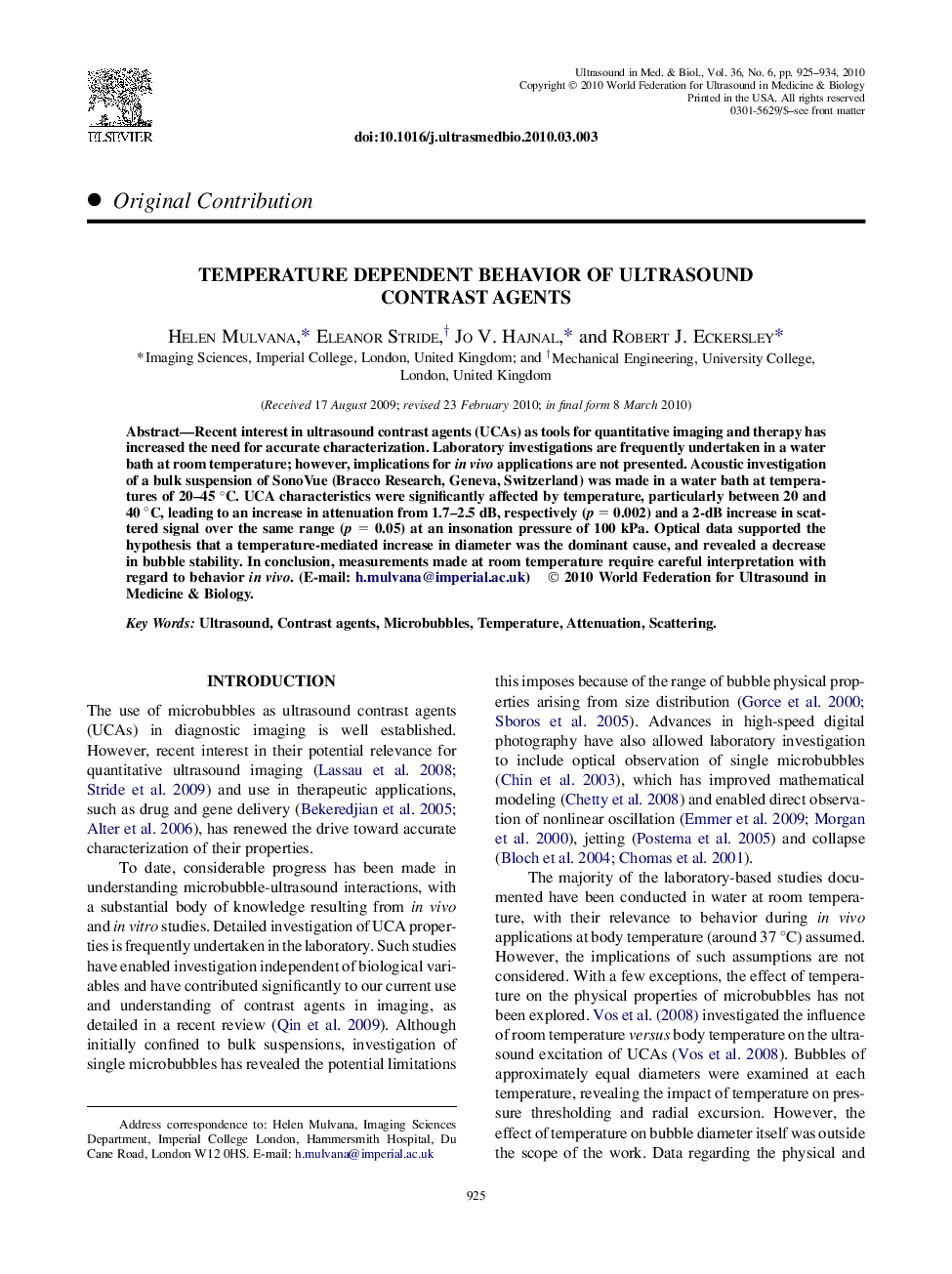| Article ID | Journal | Published Year | Pages | File Type |
|---|---|---|---|---|
| 1761798 | Ultrasound in Medicine & Biology | 2010 | 10 Pages |
Abstract
Recent interest in ultrasound contrast agents (UCAs) as tools for quantitative imaging and therapy has increased the need for accurate characterization. Laboratory investigations are frequently undertaken in a water bath at room temperature; however, implications for in vivo applications are not presented. Acoustic investigation of a bulk suspension of SonoVue (Bracco Research, Geneva, Switzerland) was made in a water bath at temperatures of 20-45 °C. UCA characteristics were significantly affected by temperature, particularly between 20 and 40 °C, leading to an increase in attenuation from 1.7-2.5 dB, respectively (p = 0.002) and a 2-dB increase in scattered signal over the same range (p = 0.05) at an insonation pressure of 100 kPa. Optical data supported the hypothesis that a temperature-mediated increase in diameter was the dominant cause, and revealed a decrease in bubble stability. In conclusion, measurements made at room temperature require careful interpretation with regard to behavior in vivo. (E-mail: h.mulvana@imperial.ac.uk)
Related Topics
Physical Sciences and Engineering
Physics and Astronomy
Acoustics and Ultrasonics
Authors
Helen Mulvana, Eleanor Stride, Jo V. Hajnal, Robert J. Eckersley,
